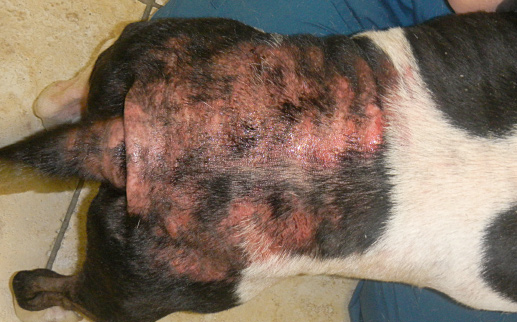Allergies in Pets
Spring has Sprung and just like us, our pets can suffer from allergies.
Allergies in dogs and cats can be very frustrating especially considering they can't tell us what makes them feel itchy or sick.
Typically if your pet has environmental allergies they may have ear infections, chew their feet, and their entire underside may be irritated. Food allergies may manifest as gastrointestinal troubles, ear infections, chewing feet & generalized skin problems.


Diagnosis can be as equally frustrating. First of all veterinarians have to rule out bacterial, fungal and parasitic infections and treat any infections found. If allergies are a concern your vet will treat any infection but also get your pet on additional medications for the allergic response & a special hypoallergenic diet. Treatment plans are adjusted based on your pet’s response.. Once doing well your vet may decrease 1 treatment/medication at a time and base recommendations on your pets response.
Diagnosis and treating allergies can take several months of healing and bringing your pets body back into balance.
Food allergies are especially tricky. Feed only the recommended food & absolutely no treats, chews or people food.
Interesting information from the human side of medicine has shown that certain allergies to pollens can correlate to some food allergies based on peak growth seasons of certain fruits and vegetables. What does this mean to us in veterinary medicine? It means that some "safe treats" may not actually be safe and can prevent your pets recovery from an allergy flare up.
Dust mites and molds can also be a big irritation for us and our pets. The recommendations for managing human allergies here have shown to have great benefit for pets too. Clean your ducts and vents every 3 years in houses with individuals who have allergies; 6 years for general maintenance. Vacuum & wash all bedding and mattresses at regular intervals. There are products available for killing dust mites such as Dustmitex - some of these products can actually control dust mites for up to 3 months! As with any product always read the manufacturers use/care and caution guide. Studies suggest the most effective products are the powders that dessicate the dust mite and vacuum up completely.
If you suspect your pet has allergies talk with your veterinary health care provider.
Here is Alberta's Board Certified Veterinary Dermatologist Dr Kinga Gortel talking allergies - a great video to watch!
Author: Angela Hick-Ewing, RVT
Resources:
Anthony Yu, DVM, MS, Dipl ACVD
Royal Canin Approach to Canine Atopy
